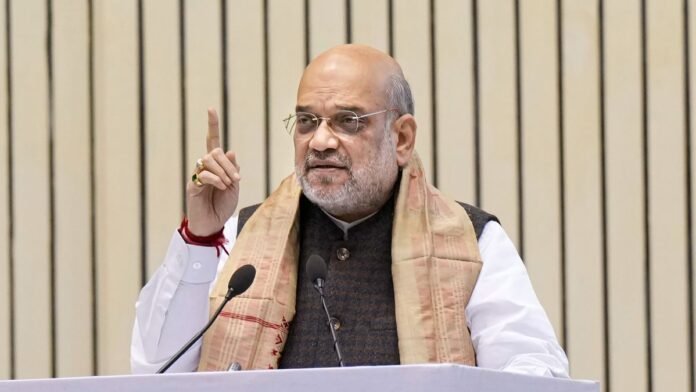Union Home Minister Amit Shah has launched a scathing critique against the Congress party for their decision to skip the exit poll debates. Shah’s comments come in the wake of the conclusion of the multi-phase Lok Sabha elections, where exit polls have sparked widespread discussions and speculations regarding the potential outcomes.
Amit Shah, a key strategist for the Bharatiya Janata Party (BJP), accused the Congress of being in “denial mode” by avoiding participation in exit poll debates. Speaking at a rally, Shah stated, “The Congress party’s decision to stay away from these debates shows their reluctance to face the reality of their declining support among the electorate. By refusing to engage in discussions, they are effectively denying the voice of the people and the emerging political narrative.”
Exit polls, conducted by various media organizations and research firms, have traditionally played a significant role in Indian elections. They provide an early indication of the possible results based on voter surveys conducted immediately after they cast their votes. While not always accurate, these polls generate substantial interest and can influence public and party perceptions ahead of the official results.
Shah’s criticism highlights the importance of these exit polls in shaping post-election discourse. He argued that participating in these debates is essential for a transparent and accountable democratic process. “Debates on exit polls are a platform for all political parties to express their views, contest findings if needed, and connect with the electorate. By abstaining, the Congress is missing an opportunity to present their perspective and counter any narratives they believe are false,” he asserted.
The Congress party, on the other hand, has defended its decision to skip the debates, citing the historical inaccuracy of exit polls and their potential to mislead the public. A senior Congress leader commented, “Exit polls have often been incorrect and are not a reliable indicator of the final results. We believe that the real verdict will be revealed when the actual counting of votes takes place. Engaging in debates over speculative data does not serve any constructive purpose.”
This defense, however, has not quelled the criticism from the BJP and its allies. They argue that avoiding these discussions sends a negative message to voters, suggesting a lack of confidence and unwillingness to confront potential unfavorable outcomes. “The Congress needs to respect the democratic process and participate in all its facets, including exit poll debates,” Shah emphasized.
Political analysts have weighed in on this controversy, noting that the refusal to engage in exit poll debates could be seen as a strategic move by the Congress to avoid legitimizing potentially unfavorable poll results. However, it also risks being perceived as a sign of weakness or an attempt to distance themselves from an anticipated poor performance.
The broader implications of this dispute are significant. It underscores the contentious nature of Indian electoral politics, where every gesture and decision is scrutinized for its potential impact on public perception. The decision to skip exit poll debates, while seemingly minor, has snowballed into a larger debate about democratic engagement and accountability.
For the BJP, this controversy provides an additional talking point to question the Congress’s commitment to democratic norms. For the Congress, it highlights their skepticism towards exit polls and their determination to focus on the official results rather than speculative discussions.
As the nation awaits the final results of the Lok Sabha elections, this episode adds another layer to the complex political narrative. It reflects the intense rivalry between the two major political forces in India and the high stakes involved in every aspect of the electoral process. Regardless of the eventual outcome, the debate over exit polls and the participation of political parties in post-election discussions will likely remain a topic of interest and contention in the future.
In addition, Amit Shah’s attack on the Congress for skipping exit poll debates has brought to light the ongoing tensions and strategic maneuvers in Indian politics. It serves as a reminder of the critical role that engagement and transparency play in maintaining the vibrancy and credibility of the democratic process.

